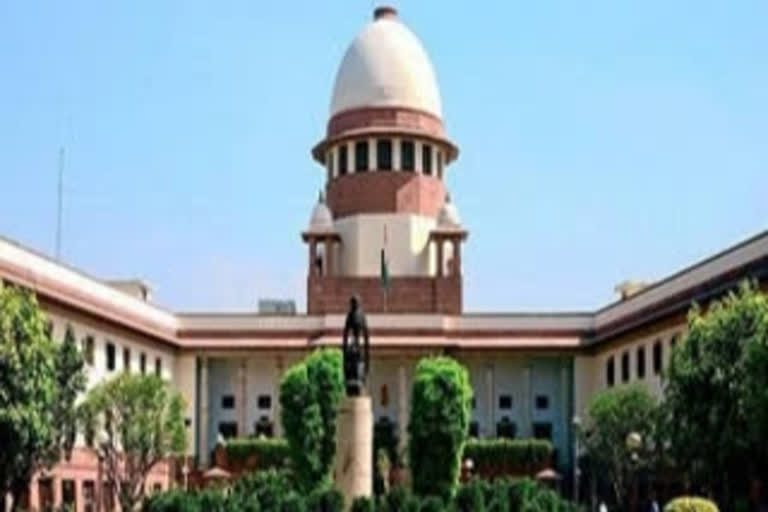New Delhi:The Supreme Court ruled on Thursday that habeas corpus writ can't be used for securing the pre-mature release of a convict under government orders (GO) or rules.
A petition under the writ of habeas corpus is filed to ensure that a person under arrest is brought before a court which would determine whether his or her detention is legal.
Making clear that habeas corpus writ can only be issued when the detention or confinement of a person is without the authority of law, the apex court said that its scope has been expanded over a period of time.
The top court's ruling came while dealing with petitions arising out of the Madras High Court verdict ordering release of several convicts under a scheme framed by the Tamil Nadu government for considering the cases of pre-mature release of convicted prisoners on the occasion of birth centenary of former chief minister M G Ramachandran.
A bench of Justices S A Nazeer and Deepak Gupta said it is a settled principle of law that a writ of habeas corpus is available as a remedy in cases where a person is deprived of his or her personal liberty.
"At the same time, the law is well established that a writ of habeas corpus will not lie and such a prayer should be rejected by the court where detention or imprisonment of the person whose release is sought is in accordance with the decision rendered by a court of law or by an authority in accordance with law," the bench said in its verdict.
"Even though the scope may have expanded, there are certain limitations to this writ and the most basic of such limitation is that the court, before issuing any writ of habeas corpus, must come to the conclusion that the detainee is under detention without any authority of law," it said.
Read: Data privacy must be seen as a human right: Nadella
The bench said there can be no dispute with the proposition that anybody who is behind the bars and is either ill-treated or deprived of his liberties, he or she may approach the court for a writ of habeas corpus.
"A writ petition by a prisoner is maintainable if his fundamental rights are violated," it said.
